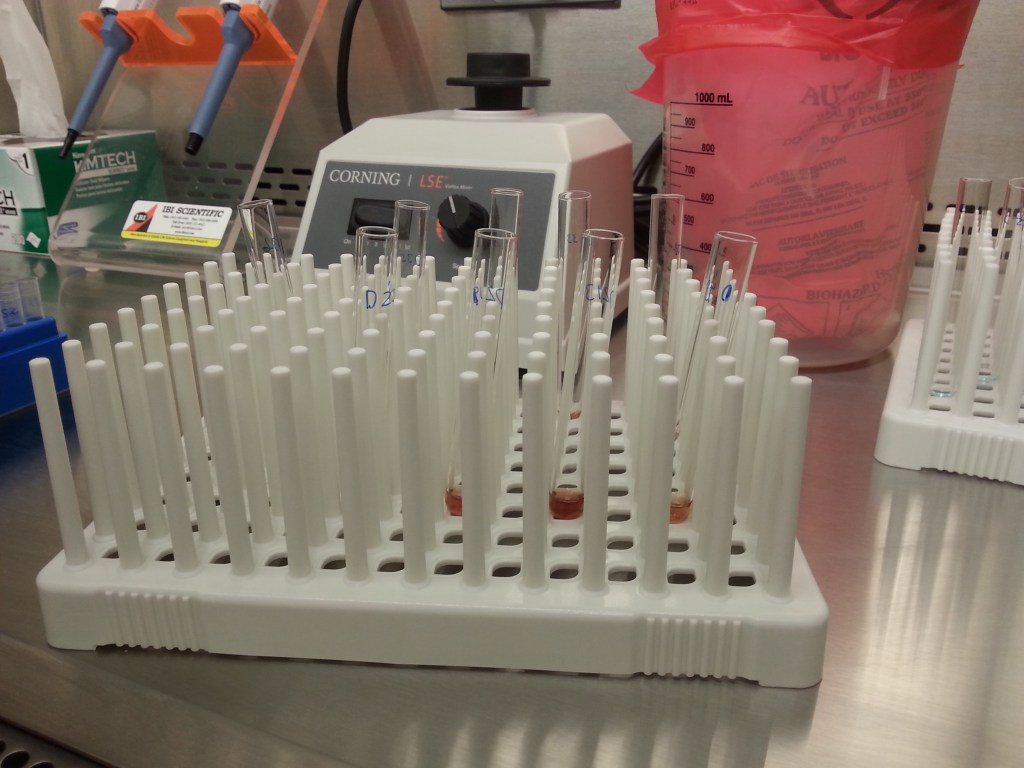The Provost Undergraduate Research Initiative (PURI) provides funding for undergraduates to work closely with a faculty member on a major research project that forms part of the faculty member’s own initiatives. The Department of Anthropology usually receives several PURI grants each year. Jonah Stone and Dr. Masako Fujita were awarded one of Anthropology’s PURIs for Summer 2015 to test iron status in dried blood spots. Jonah describes their work, and his role in it:
“I have always been interested in how humans function, both biologically and socially. I think this is what led me to physical anthropology in the first place. I found a home in both biology and anthropology, investigating how the body changes and is changed by the environment around it. My research in the Biomarker Laboratory for Anthropology Research allows me to pursue this interest by investigating the way nutrition has an effect on how the body works. My work with Dr. Fujita focuses on iron status in dried blood samples collected from northern Kenyan women during a drought. These samples were collected nine years prior to our study being conducted, and it was unclear whether or not the protein used for identifying iron status (transferrin receptor protein) would be stable considering the great amount of time the samples spent in deep freeze. My research entails testing the samples for this protein using an ELISA kit (enzyme-linked immunosorbent assay) which utilizes antibodies to induce a color change in samples containing the intact protein. I ran the transferrin receptor protein ELISA and compared results with hemoglobin values that were assessed at the time of original blood collection. The research took about two months to complete, and I submitted an abstract about my work to the 2016 Human Biology Association meeting. By determining how the protein holds up over time, it is my hope that we can further research into the applicability of dried blood spot assay technology and contribute to studies on nutrition and iron deficiency anemia in Kenyan rural communities.
Through human biology research like that done in Dr. Fujita’s lab, more can be understood about how the human body functions when exposed to environments where there is less food or fewer opportunities for maintaining healthy nutrient levels. This understanding can help governments and organizations formulate decisions regarding public welfare and help those in need. In the future, I want to continue to do work on how the environment changes the human body, but in the realm of skeletal biology and drawing on forensics. I am fascinated by the histology and biochemistry of bones and how different stresses, whether they are nutritional or otherwise, change the morphology of the different structures in the human skeleton.
It is my hope that I can combine human biology with forensic osteology research to create a happy medium between the two. What I have learned through Dr. Fujita’s guidance has given me a unique perspective on how I can best use my degree and experience: I can use it to further understanding of how the body is changed by the world around it.”
Images, top to bottom: Jonah Stone while on Study Abroad in England; Test tubes containing eluates (solution obtained from eluting dried blood spots in a buffer) for use later in the assay procedure
This article is in the Department of Anthropology’s Fall 2015 Newsletter, see the entire newsletter here.

